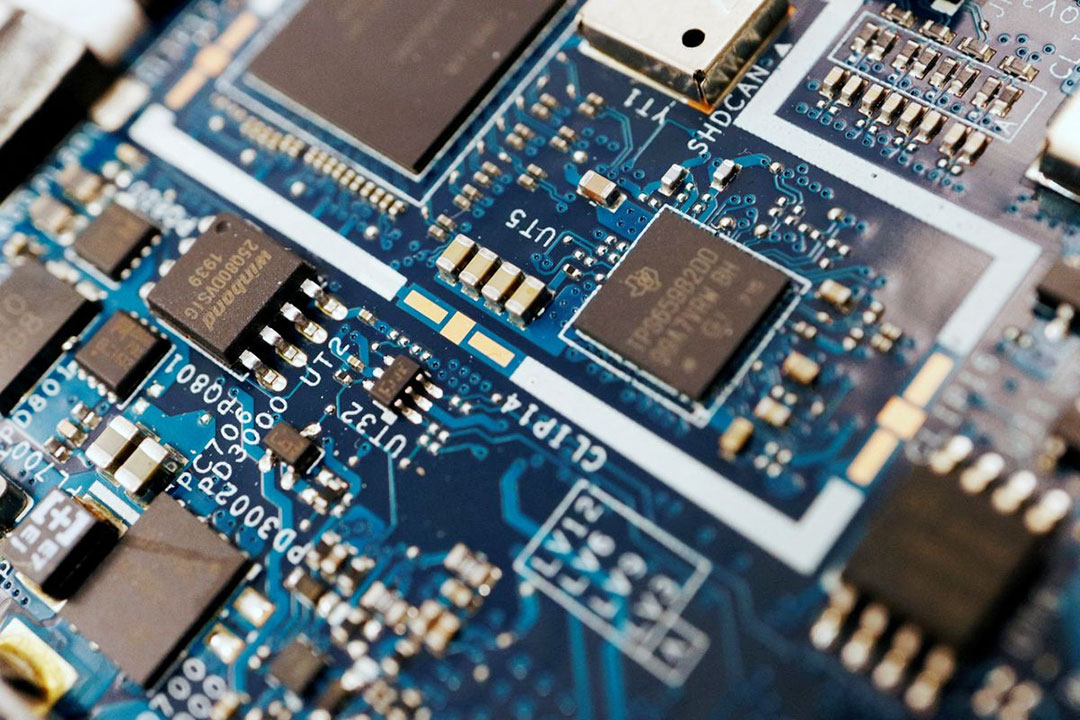
THE PHILIPPINE GOVERNMENT is seeking an exemption from US tariffs on select exports, particularly semiconductors, a move aimed at safeguarding one of the country’s most important industries.
“We are working on getting several of our exports exempted,” Special Assistant to the President for Investment and Economic Affairs Frederick D. Go told reporters on the sidelines of the Economic Journalists Association of the Philippines Economic Forum on Monday.
He said an exemption can be sought for products that an exporting country produces in abundance and cannot be produced in the US.
In particular, he said that the government hopes that the US will exempt Philippine-made semiconductor chips from steep tariffs.
“We are hoping that they view the work we do here in the Philippines, which is ATP (assembly, testing, and packaging), to be part of the process that the US may not really want to do. So, we are hoping… and we have expressed this, that ATP is a process that the semiconductor companies would probably want to outsource,” he said.
The Philippines is a key player in the ATP segment of semiconductor production. Electronics and semiconductors are the country’s single largest export category.
Last week, US President Donald J. Trump announced a 100% tariff on imports of semiconductors in a bid to bring back manufacturing to the country. However, he offered exemptions to companies currently manufacturing in the US and planning to do so.
Mr. Go said Mr. Trump’s proposed tariff on semiconductors remains uncertain, but some countries are already claiming exemptions for their semiconductor exports.
“So, we are still seeking clarification from the US Trade Representative side, and of course we are lobbying that our semiconductor exports likewise be exempted if there is such,” he said.
The US had paused tariffs on imports of semiconductors and semiconductor manufacturing equipment, which have been the subject of a US national security investigation. The results are expected to be out within the month.
Semiconductor and Electronics Industries in the Philippines, Inc. (SEIPI) President Danilo C. Lachica welcomed the government’s move to seek an exemption for Philippine-made chips.
“We appreciate the government’s effort to secure an exemption for our semiconductor exports,” said Mr. Lachica in a Viber message.
Mr. Lachica warned last week of the devastating effect of the proposed 100% tariff on semiconductors entering the US market on Philippine exporters.
In a separate message, Mr. Lachica said the Philippines’ semiconductor and electronics industries should expand to other markets.
“The impact really would be very complex, and it affects the whole supply chain,” he said, noting it can also drive up logistics costs for semiconductor firms.
He also said the industries should work to move up the value chain into research and development and integrated circuit design and other high-value activities.
Associate Professor of the University of Asia and the Pacific George N. Manzano said some US-owned semiconductor firms may move back to the US if Mr. Trump pushes through with his threatened semiconductor tariff.
“The danger to the Philippines is that 100% tariffs on semiconductors by the Trump administration, might motivate some of these US-owned semiconductor companies to move back operations to the US. I hope it does not lead to that,” Mr. Manzano said.
Diwa C. Guinigundo, country analyst at GlobalSource Partners and a former central bank governor, said a 100% US tariff on semiconductors could hurt the Philippine exporters.
“We are now hit by double whammy: higher reciprocal tariff of 19% and then this 100% on specific product as semiconductors and electronics,” Mr. Guinigundo said in a Viber message.
The US began imposing higher tariffs on most of its trading partners starting Aug. 7. A 19% tariff was slapped on goods from the Philippines, Indonesia, Cambodia, Malaysia and Thailand.
“US imports from the Philippines will be more expensive and domestic demand could possibly decline. We don’t exactly have the lowest cost of doing business to make us more competitive than the rest.”
TRANSSHIPMENTMeanwhile, Mr. Go said that the Philippines’ deal with the US does not include tariffs on transshipment of goods from third countries.
“The transshipment category applies to countries that the US believes engage in transshipments from a third country… We do not have that clause because we do not, and we are not identified as one of those who engage in transshipments,” he added.
The US imposed a 20% tariff on goods from Vietnam, while transshipments from third countries through Vietnam will face a 40% levy. — Justine Irish D. Tabile and Aubrey Rose A. Inosante